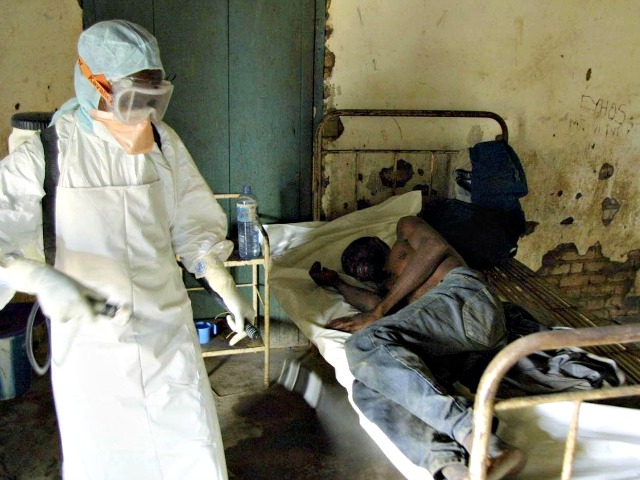
Nations facing the Ebola virus have experienced a devastation unprecedented in the history of the disease. To fully grasp the magnitude of the outbreak’s disastrous affects on Liberia, a column in the nation’s largest newspaper, the Liberian Observer, asks whether the loss of more than 2,000 lives to Ebola can compare to a similar death toll for Americans on September 11, 2001.
Author Makanfi Kamara notes that, while the cultures in question are radically different, like 9/11 did for Americans, Ebola forced Africans to change their daily lives. Africans usually wash, embrace, and bury their own dead. Medical experts advised people not to do this with anyone who died or might have died of Ebola. Bushmeat, a popular form of meat, is not consumed as much anymore because the animals can carry Ebola. The outbreak, experts believe, is a product of consumption of undercooked fruit bat. But while such sweeping changes are devastating, so too are the little things Africans changed. From The Liberian Observer:
Liberians are so used to greeting each other by touch – a hand shake here, an embrace there, even a kiss. Where we used to share cups, bowls and spoons; beds, clothes and shoes; we now think thrice about potential threats of infection from our closest friends and relatives. Instead, we wash hands religiously at every door post, keep a distance beyond arm’s length and sometimes bow to greet each other like the Chinese. Some women have even put their male partners “on dryer” – a moratorium on sexual activity until the Ebola Season is over. And many men have admitted that, fearing for their own lives, they have decided to “abide by the rules of the game” – fidelity.
Not all agreed with the comparison. Nvasekie Konneh, poet and author, said 9/11 and Ebola “are disastrous,” but are very different. The US was strong enough to handle the terrorist attack, the writer argues, while the affected African countries do not have the ability to handle the Ebola outbreak. They are poor, less educated, lack regular hygiene, and have a mediocre medical system.
Another expert, journalist Stanford Peabody, added that 9/11 was a one-time attack, while Ebola is still going strong. Ebola “intimidates, divides, sickens and then kills. It hides and strikes and people are ashamed when it attacks so they hide the weapon and become weapons themselves.” The disease kills entire families and villages. The sick are left to die alone because of the stigma and fear of infection.
Rotary Peace Activist Israel Newberry disagreed. He said the two cannot be compared.
“Whenever you leave the zones of Ebola not being infected, you have a sense of safety,” he said. “But for the U.S. citizens, they feel very much unsafe in other countries where they are known as U.S. citizens. They were attacked by terrorists everywhere. Not like Ebola at all.”
Since mid-February, Ebola infected 4,784 people in West Africa and killed over 2,400. These are only the confirmed cases, but there could be many more due to people’s fears of the hospitals and doctors. A new study from Oxford University adds that, given the widely practiced tradition of eating bush meat, the populations of 15 countries not currently experiencing effects of the outbreak are at risk for contracting Ebola.
Frances Martel contributed to this report.

COMMENTS
Please let us know if you're having issues with commenting.